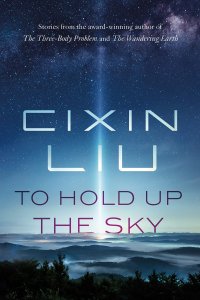Ian Mond Reviews Occupy Me by Tricia Sullivan
 Occupy Me, Tricia Sullivan (Gollancz 978-1473212978, £8.99, 288pp, tp) November 2016. (Titan 978-1473212978, $13.99) September 2018.
Occupy Me, Tricia Sullivan (Gollancz 978-1473212978, £8.99, 288pp, tp) November 2016. (Titan 978-1473212978, $13.99) September 2018.
I had planned to pick up Tricia Sullivan’s Occupy Me two years back when it was first published in the UK. I never got around to it. When the novel was shortlisted for the 2017 Arthur C. Clarke award, I made serious plans to read it with the rest of the nominees. I failed to do both. Just as Occupy Me was to be consigned to that long list of unread novels I’d never get around to, I was asked if I would like to review the recently released US edition. I immediately put up my hand. This time, come hell, high water, and deadlines I was going read Occupy Me, and what a gonzo experience it turned out to be.
The first indication we get that this is going to be a mind-boggling ride is when orthopaedic surgeon Doctor Kisi Sorle, having just wounded and murdered members of Austen Stevens’s family, shoves the dying businessman into a magical briefcase. Skip a few short chapters and Doctor Sorle, travelling by plane, is suddenly attacked by one of the flight attendants. Said flight attendant is a higher-dimensional being named Pearl who recognises Doctor Sorle as the person who stole her waveform launcher (AKA the briefcase). The struggle that ensues sees both Sorle and Pearl sucked out of the plane, plummeting thousands of feet to the sea below. At this point, the magical briefcase, which has come along for the ride, flaps open, shoots out a fireball and then, in a moment that’s utterly insane, vomits out a pterosaur.
If at this point you think there’s no way Occupy Me can top the sudden appearance of a flying dinosaur you would be wrong. For one, Pearl – did I mention she has wings that exist in another dimension – has no idea what she’s doing on Earth or what her mission is. Her search for an identity brings her into contact with the Resistance, an organisation that appears to exist outside causality and whose primary objective is to promote “small but targeted acts of human kindness.” Pearl is working for the Resistance when she has her tussle with Doctor Sorle. As for the good Doctor, it appears he’s been possessed by an alternate and corrupted version of himself who, with the help of Austen Stevens, has pilfered billions of dollars from Pace, a multinational known for stripping the resources of third world countries.
I had tremendous fun reading Occupy Me. It’s a novel crammed with ideas. Sullivan’s breathless prose – toggling between the perspectives of Kirsi Sorle and Pearl – explores the nature of time and reality, corporate greed and whether kindness can be engineered. Of all the ideas that Sullivan presents, the timey-wimey characteristic of the Resistance is the most fascinating, especially how the organisation crowdsources acts of goodwill. There are also lovely character notes, in particular, the brief but touching relationship between Pearl and Akele, the owner of a junkyard who finds and cares for the bewildered higher-dimensional entity when she first appears on Earth.
However, with the focus regularly shifting between showstopping set pieces and dazzling ideas, it’s never entirely clear what’s at stake. Is this a thriller about globalisation and corporate greed? Is it about a higher-dimensional entity trying to regain her sense of purpose and identity? Is it about saving what’s left of the Universe from entropy? (I haven’t even mentioned the bird creatures that appear in the book’s second half.) Even the Resistance and its survival, pivotal to the plot and the characters’ motivations for the first half of the novel, fades into the background as the narrative reaches its climax.
Occupy Me is a novel that has plenty to say but never finds the time to say it. There are significant, albeit brief, conversations about the treatment of the third world by multinationals – it’s what motivates Kirsi Sorle to embezzle Pace’s money – and whether the Resistance’s objectives are inherently moral: is it appropriate to orchestrate altruism? As Pearl’s friend Alison says during a rare quiet moment:
The whole point of kindness is that it doesn’t give you anything back. Kindness is like feeding the birds. You offer seeds and don’t control where they go or what they do.
It’s a fascinating take on what it means to be selfless, but it’s never developed beyond this conversation, ultimately overwhelmed by Sullivan’s desire to keep the story moving, to continue upping the ante. While it makes for a genuinely exciting read, once the adrenaline rush fades there’s not enough substance to hold the novel together.
This review and more like it in the December 2018 issue of Locus.
 While you are here, please take a moment to support Locus with a one-time or recurring donation. We rely on reader donations to keep the magazine and site going, and would like to keep the site paywall free, but WE NEED YOUR FINANCIAL SUPPORT to continue quality coverage of the science fiction and fantasy field.
While you are here, please take a moment to support Locus with a one-time or recurring donation. We rely on reader donations to keep the magazine and site going, and would like to keep the site paywall free, but WE NEED YOUR FINANCIAL SUPPORT to continue quality coverage of the science fiction and fantasy field.






